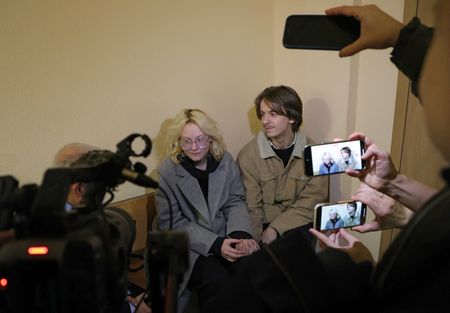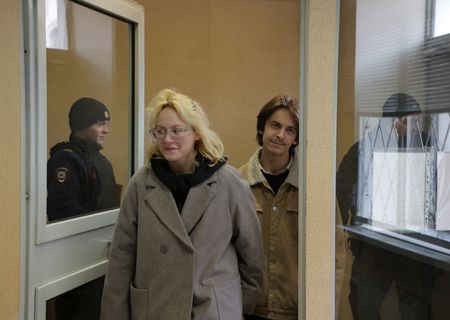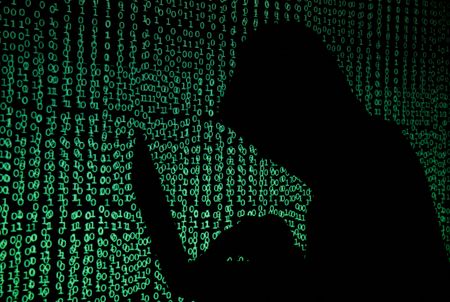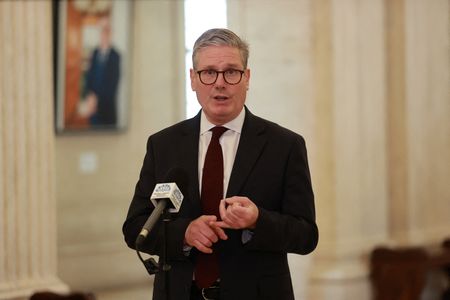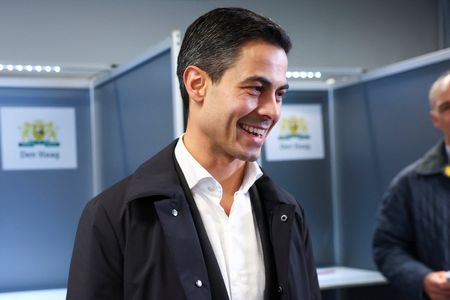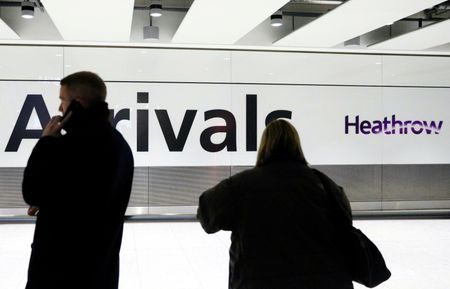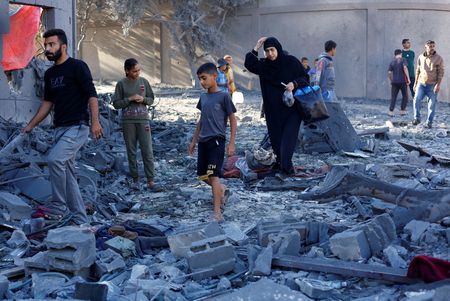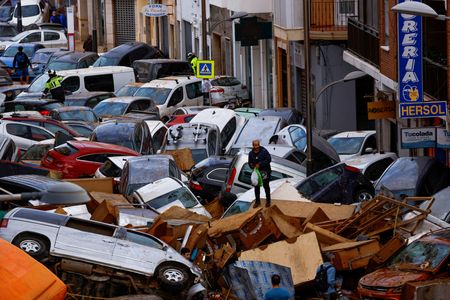ST PETERSBURG (Reuters) -A group of young Russian street musicians who went viral on social media for playing banned anti-Kremlin songs received more jail time on Wednesday, as authorities crack down on buskers who have staged performances across Russia in support of them.
The members of the band Stoptime were arrested earlier this month after performing the popular song “Swan Lake Cooperative” by exiled Russian rapper Noize MC – who is openly critical of the Kremlin – on a busy street in St Petersburg.
“The power of music is important, and what is happening now proves it,” the group’s 18-year-old vocalist Diana Loginova told reporters ahead of Wednesday’s court hearing.
Stoptime’s show on the central Nevsky Prospekt has spawned several solidarity performances of other anti-Kremlin songs by young buskers across multiple Russian cities, including Yekaterinburg, Moscow and St Petersburg. Several of the musicians have been arrested and charged with petty crimes.
“Swan Lake Cooperative” was banned in Russia in May on the grounds it contained “hostile, hateful attitudes towards people” and promoted “violent changes to the foundation of the constitutional order”. The song makes no explicit reference to Russian President Vladimir Putin or the conflict in Ukraine.
‘THE WILL TO RESIST’
Public expressions of dissent are rare in Russia, which has cracked down on any opposition to the Kremlin’s policies with lengthy prison sentences.
Stoptime’s vocalist Loginova received a 13-day sentence for petty hooliganism on Wednesday. She has already completed a separate 13-day sentence in connection with the Noize MC performance and was fined 30,000 roubles ($369) on Tuesday for singing another song by a different anti-Kremlin artist.
Alexander Orlov, the group’s guitarist, was jailed for 13 days on Wednesday on charges of illegally organising a rally, while drummer Vladislav Leontyev is facing a fresh administrative charge. The two have already served short stints in jail this month.
Maxim Reznik, a former opposition politician in local government in St Petersburg, said he thought authorities would struggle to suppress the street performances.
“We are dealing with a whole generation of people who are unwilling to put up with what is happening,” he told independent television channel Dozhd (TV Rain), which is banned in Russia and operates from Amsterdam.
“No matter how much the authorities tighten their repression, they will not be able to suppress the will to resist.”
($1 = 81.3000 roubles)
(Reporting by Reuters in St Petersburg; Writing by Lucy Papachristou in Tbilisi; Editing by Peter Graff)

